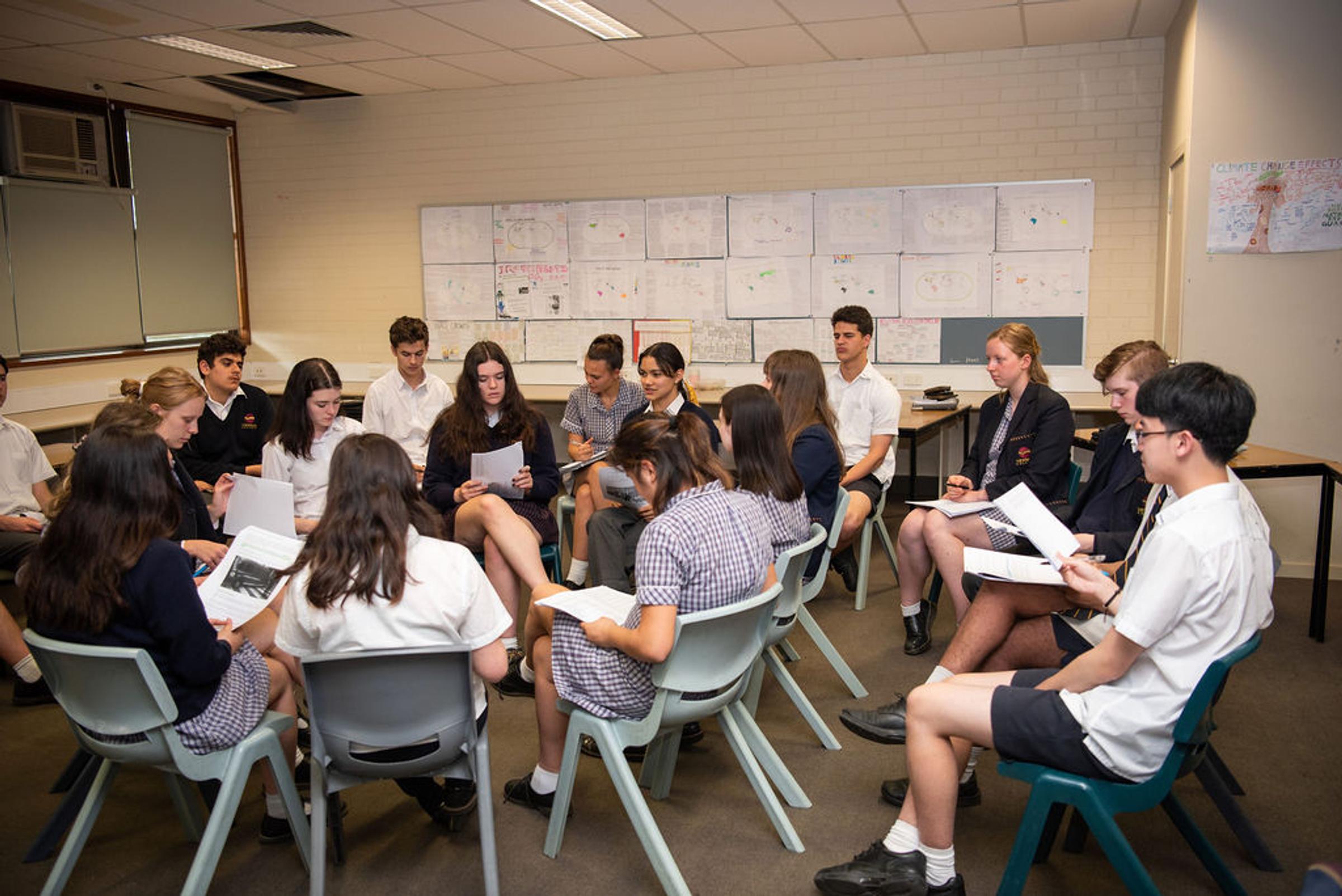Year 8 English

Core English Subjects |
|---|
English |
Accelerated and Enhanced English (AE class only) |
Year 8 English
The Year 8 English course is based on the Victorian Curriculum which is organised into three interrelated strands: Language, Literature and Literacy. Together the three strands focus on developing students’ knowledge, understanding and skills in Reading and Viewing, Speaking and Listening, and Writing. The course aims to continue to develop these skill areas and encourages students to broaden their outlook on their world. Students increase their appreciation of written and multimodal forms and recognise that texts reflect different viewpoints. In addition, students will examine the Intercultural Capability which assists young people to become responsible local and global citizens.
Language
Students will learn:
- To understand how coherence is created in complex texts.
- To understand the use of punctuation conventions.
- To understand how to apply learned knowledge consistently in order to spell accurately.
- To recognise that vocabulary choices contribute to the specificity of texts.
Literature
Students will learn:
- To explore the interconnectedness of Country and Place, People, Identity and Culture in texts.
- To interpret and analyse language choices in texts.
- To identify and evaluate devices that create tone in texts.
- To recognise and explain different viewpoints represented in texts.
Literacy
Students will learn:
- To plan, rehearse and deliver presentations, selecting and sequencing appropriate content.
- To use a range of software to publish texts.
- To apply increasing knowledge of vocabulary, text structures and language features to understand the content of texts.
- To create imaginative, informative and persuasive texts that raises issues, report events and advance opinions.
Year 8 Accelerated and Enhanced English
The Year 8 Enhanced Accelerated English course is based on the Victorian Curriculum which is organised into three interrelated strands: Language, Literature and Literacy. Together the three strands focus on developing students’ knowledge, understanding and skills in Reading and Viewing, Speaking and Listening, and Writing. The course covers a combination of the Year 8 and Year 9 English coursework. Students broaden their outlook on their world and increase their appreciation of written and multimodal forms. They create structured and coherent texts for a range of purposes and audiences and develop their ability to express or challenge a point of view. In addition, students will examine the Intercultural Capability which assists young people to become responsible local and global citizens.
Language
Students will learn:
- To understand how coherence is created in complex texts.
- To understand the use of punctuation conventions in formal and informal texts.
- To understand how to apply learned knowledge consistently in order to spell accurately
- To recognise that vocabulary choices contribute to the specificity, abstraction and style of texts.
- To understand how different layers of meaning are developed through the use of literary devices.
Literature
Students will learn:
- To explore the interconnectedness of Country and Place, People, Identity and Culture in texts.
- To interpret and analyse language choices in texts.
- To identify and evaluate devices that create tone in texts.
- To recognise and explain differing viewpoints about the world, cultures, individual people and concerns represented in texts.
- To recognise, explain and analyse the ways literary texts draw on readers’ knowledge of other texts and enable new understanding and appreciation of aesthetic qualities.
Literacy
Students will learn:
- To plan, rehearse and deliver presentations, selecting and sequencing appropriate content.
- To use a range of software to publish texts.
- To apply increasing knowledge of vocabulary, text structures and language features to understand the content of texts.
- To create imaginative, informative and persuasive texts that raise issues, report events and advance opinions.
- Use comprehension strategies to interpret and evaluate texts by reflecting on the validity of content and the credibility of sources.